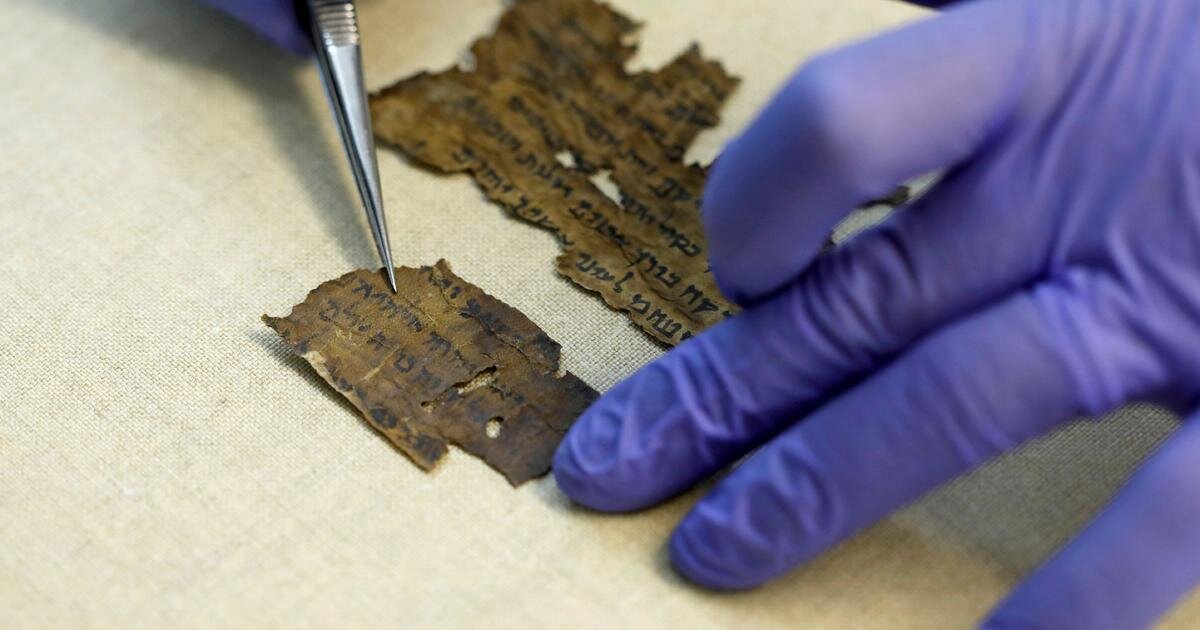Israeli archaeologists have unearthed two dozen Dead Sea scroll fragments from a remote cave in the Judean Desert, the first discovery of such Jewish religious texts in more than half a century. The Israel Antiquities Authority revealed on Tuesday that a four-year-long national excavation project, which was launched to prevent the looting of antiquities, had uncovered dozens of 2,000-year-old biblical scroll fragments.
The scrolls contain verses from the Book of the Twelve Minor Prophets, including Zechariah and Nahum, and are written in Greek — with the exception of God’s name in Hebrew.
The scroll fragments were recovered from what’s known as the Cave of Horror, where Jewish refugees are believed to have hidden during a failed uprising against the Roman Empire nearly 1,900 years ago.
Earlier discoveries of the Dead Sea Scrolls contain parts of all but one book in the Hebrew Bible, as well as the earliest copy of the Ten Commandments. The ancient scrolls are mostly written on parchment and papyrus and are believed to date from the 3rd century B.C. to the 1st century A.D.
Of the most recent finds, Avi Cohen, CEO of the Ministry of Jerusalem and Heritage, said they were “not just important to our own cultural heritage but to that of the entire world.”
“The scroll fragments containing biblical texts, the coins and the additional finds from the Second Temple Period that were found in this unique project directly attest to the Jewish heritage of the region and the inseparable bond between the Jewish cultural activities and our place in this land,” Cohen said.









